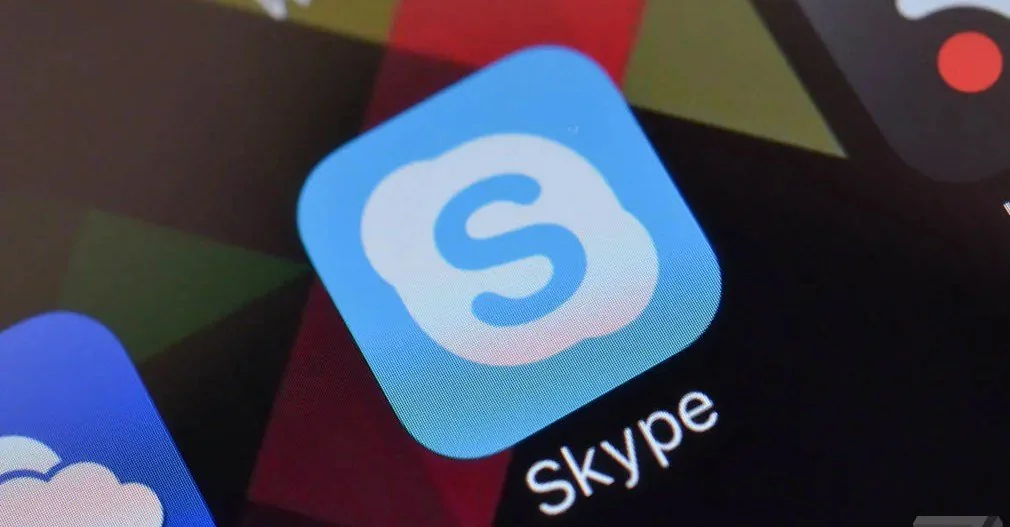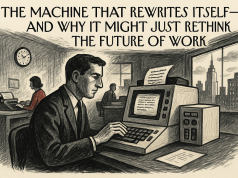There’s something poetic about Skype signing off quietly on a Monday. No farewell party. No confetti from Redmond. Just a soft click — the kind that ends a call and a chapter.
But for a generation that grew up Skyping parents from hostel dorms, pitching ideas across oceans, or saying “I love you” in 480p pixelation — this goodbye stings.
As someone obsessed with how technology transforms how we work, learn, and live, I find Skype’s departure more than nostalgic — it’s instructive. Because Skype wasn’t just a communication tool. It was an early ambassador of the remote revolution, the human cloud, the borderless team. And yet, despite its head start and household name, Skype finds itself… obsolete.
The question is: Why? And more importantly: What should the rest of us — founders, designers, leaders, builders — learn from its long goodbye?
🐸 The Frog in the Video Call
There’s an old fable about a frog in a slowly boiling pot. If you raise the heat slowly, the frog won’t jump. It’ll sit there. Until it’s too late.
Skype, the frog. The world of work, the pot.
Skype didn’t die suddenly. It faded. From 300 million users at its peak to 28 million by last year. Its decline didn’t come from scandal or shutdown — it came from a slow and steady failure to evolve. While Zoom danced in quarantine spotlight and Slack turned into digital water coolers, Skype clung to yesterday’s interface and tomorrow’s indifference.
🧬 The Four Critical Lessons from Skype’s Rise and Quiet Exit
1. First Mover ≠ Forever Mover
Skype invented the category of consumer video calls. It democratized long-distance communication. It should have owned the hybrid workplace. But legacy is a fragile thing when not built on adaptability. Much like Kodak with digital cameras or Blockbuster with streaming, Skype forgot that the world doesn’t wait for pioneers to catch up.
Lesson for work: Being early doesn’t matter if you stop listening. Innovation isn’t about being first — it’s about being right consistently.
2. The Unlived Potential of Emotional Infrastructure
Consider this:
- A long-distance couple celebrated birthdays with cakes and calls on Skype.
- A grieving widow found closure by messaging her late husband’s account.
- A 99-year-old mother sees her daughter every day, 7,000 miles away — on Skype.
What Skype accidentally built wasn’t just a call app — it was an emotional scaffold. A digital hearth. But it never developed features to hold those emotions meaningfully. No memory timelines, no AI journaling, no preserved conversations with dignity.
Lesson for work: The future of platforms isn’t utility, it’s intimacy. As humans demand more humane tech, the next generation of tools must be emotionally literate. Workplaces must care not just for productivity, but for presence, connection, and memory.
3. A Platform Without a Community is Just an App
Skype was a node-based network — not a community. It never leaned into shared spaces, learning networks, or digital neighborhoods. Slack built channels. Zoom built breakout rooms. Discord built subcultures. Skype? It built… calls.
What if Skype had become the commons of the global freelancer economy? Or the mental wellness companion for remote workers? Or the digital agora for the 2 billion people working outside traditional offices?
Lesson for work: Communities are not side effects — they are core infrastructure. In the future of work, relevance belongs to those who build belonging.
4. Failing to Hear Is the First Step to Becoming Irrelevant
Ironically, for a communication tool, Skype stopped listening. While users screamed for simplicity, mobile-first UX, collaborative tools, and integrations — Skype added clunky logins and ignored the ecosystem. It was a classic case of centralization over decentralization. A locked house in an open world.
Lesson for work: The most relevant platforms of tomorrow will act more like ecosystems than tools — sensing, evolving, and learning in real-time. They will listen not just with analytics, but with empathy.
💡 So… What Should the World of Work Take Away?
Here’s the good news: Skype’s slow fade gives us a loud lesson — evolve with your workers, or become irrelevant to them.
As we move into an age defined by:
- distributed teams,
- asynchronous communication,
- AI-enhanced work,
- emotionally intelligent leadership…
…we need tools and cultures that are designed to hear, designed to adapt, and designed to care.
At TAO.ai, we’ve built our ecosystems around a simple belief:
Empowered workers build thriving communities. Thriving communities uplift empowered workers.
It’s a virtuous cycle — one Skype could’ve sparked, but left unfinished.
🎯 The Way Forward: Relevance as a Practice
Here’s how every builder and leader can avoid Skype’s fate:
- 🔄 Adaptability > Legacy: Stay curious. Iterate fast. Don’t marry your MVP.
- 💬 Listening Infrastructure: Build in feedback loops. Let workers co-author the platform.
- 🧠 Emotional UX: Don’t just design for clicks. Design for connection.
- 🌍 Community Integration: Create spaces where users teach, uplift, and grow together.
- 🔁 Ecosystem Thinking: View your tool as part of a larger life and work journey — not just a feature list.
🛎️ A Final Ring
Skype’s ringtone will always echo in the minds of a generation. But nostalgia isn’t enough to save relevance.
Let us honor what Skype stood for: connection, audacity, and simplicity.
And let us build forward — with tools that don’t just connect us, but see us. Tools that grow with us. Tools that never stop listening.
Because in the world of work, the real missed call is the one we didn’t hear.




























